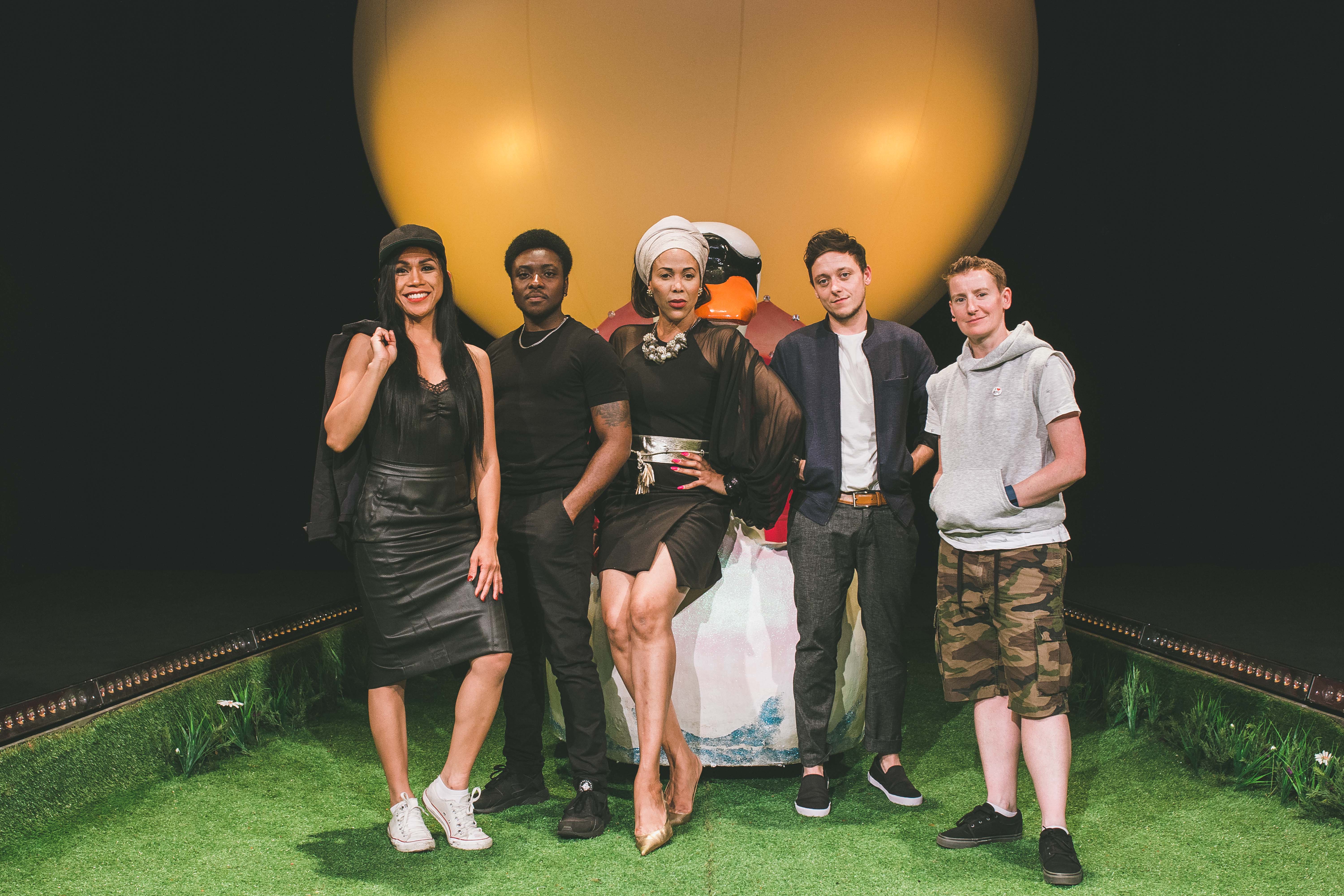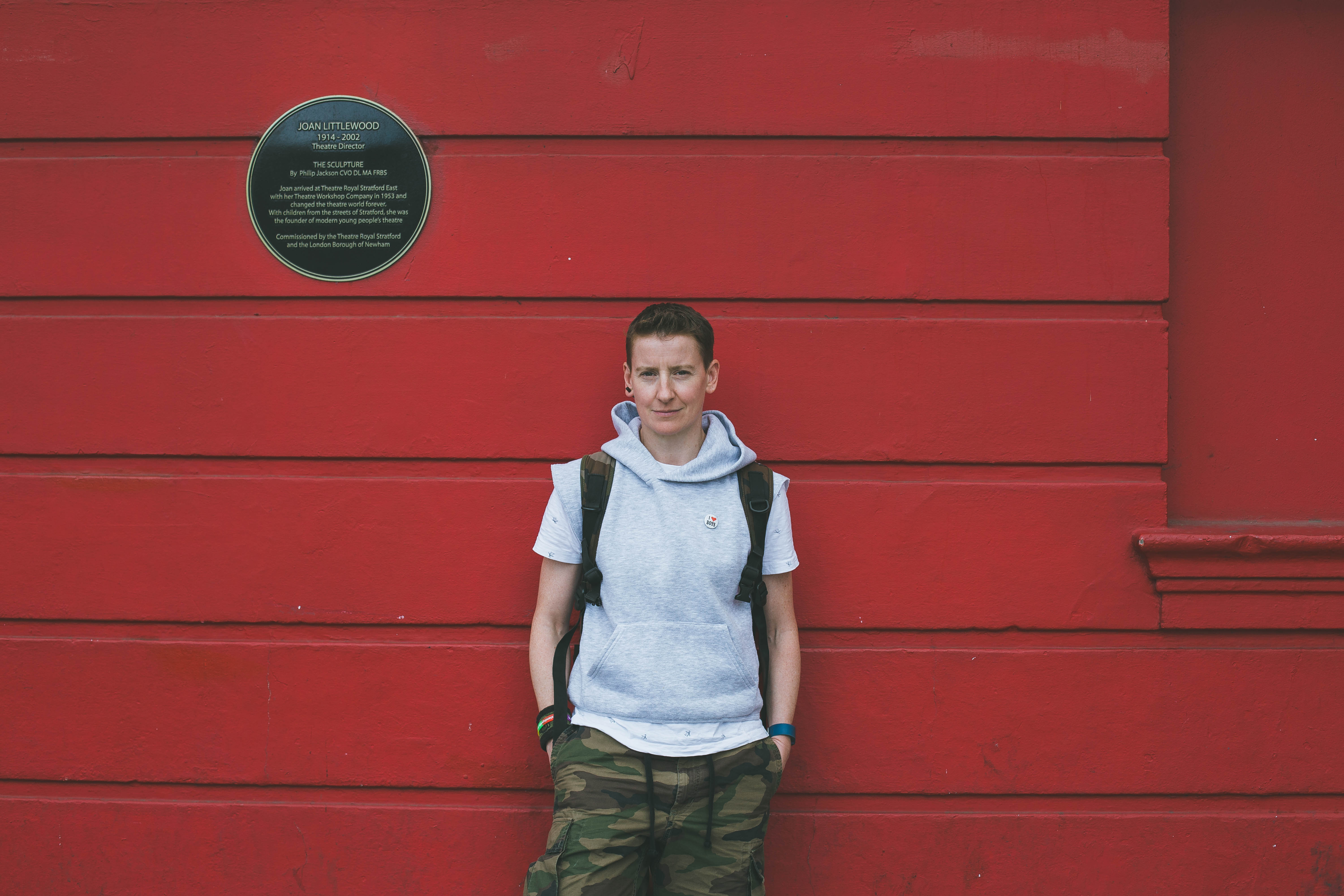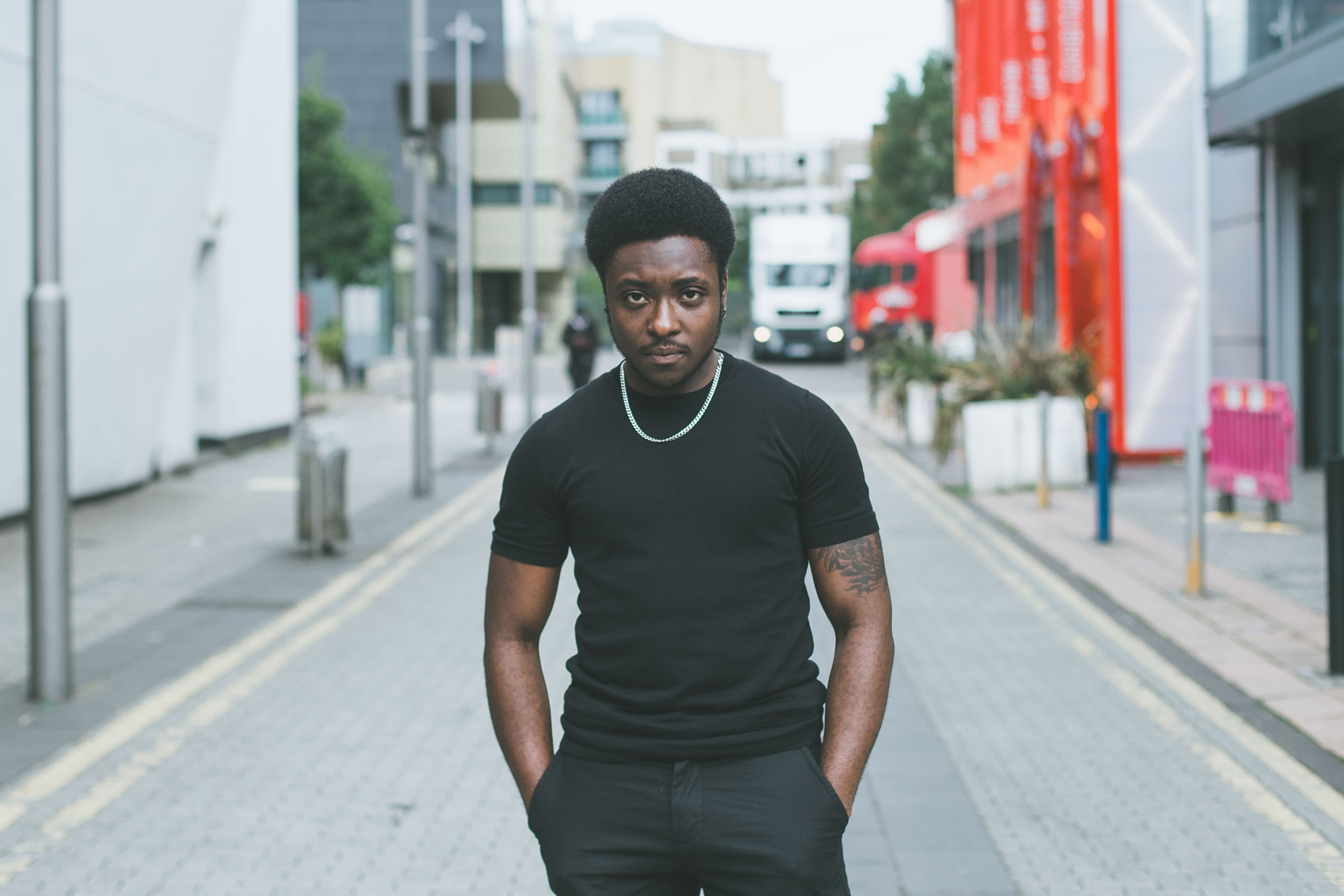Should only trans actors take up trans parts?
- Text by Michael Segalov
- Photography by Theo McInnes

Summer in London, a new play running at Theatre Royal Stratford East, is a great piece of theatre. With new writing from London’s finest Rikki Beadle-Blair, it’s a story of love, romance and adventure in the capital that’s both optimistic and fun, while not hiding from the harsh reality of youth and all that comes with it. It deals with serious themes: homelessness, sexuality, violence – but there’s a warmth to the production, a light touch which leaves a smile.
But as I take a seat with most of the cast in the stalls a day after opening night, there’s a whole lot more to talk about. There are seven actors who make up the cast in the play, and each of them are transgender. Ash Palmisciano plays Jack in the show, one of four homeless young Londoners ducking and diving to get by in the city. “You could describe me as a trans man but most importantly I’m just a human,” he explains. We’ve just gone around as a group (myself included) to confirm which pronouns each of us prefer using, and I’ve asked the cast to introduce themselves so I know who is who.
“I use he/him,” says 21-year-old Tyler Luke Cunningham who plays Hamza. “I identify half as a trans man, half just as a man, as a human.”

The cast
I’m also joined by Mzz Kimberley, Victoria Gigante and Tigger Blaize, a talented group of actors and performers, and Tyler’s sentiment is one that’s shared by the entire cast: humans first, being trans is just a bonus.
But while the play itself has made history with its all trans cast, when the curtain comes up and the lights turn on this isn’t a play directly about the trans experience. In fact, while of course it’s never possible to know a character’s back story, there’s no mention in the script that any of the characters are transgender. And yet, in the marketing, promotion and hype for the show their trans identities are an important pull.

Ash
“I had to think a lot about that,” says Ash, the others nodding. “Asking myself, do I want to put my name to this label? Once you put your name out there as transgender person it’s hard to escape.” Ash talks of being worried about getting typecast – he might be trans but playing cis male parts is an important part of his work. “I had to think about it, but I realised that if I wan’t to make a change in the world then I have to own this, I have to wear this label and be proud if it.”
“I was glad that I could get involved with something where it was all about a trans cast, but the play itself wasn’t just about trans issues,” adds Mzz Kimberly. “When you come to see this show they don’t come to see trans people performing, they come to see actors performing.”
It’s almost as if the gender of the cast is a focus before you enter the theatre, but as you step inside and take a seat that’s all left at the door. That conversation is out the way, there’s no sense that an all trans cast is unexpected. Now sit back, relax, and enjoy the show in all its glory as it explores the universal themes of love, lust and loneliness.
That being said, there’s something powerfully political about watching and working with such a diverse cast. Sure the entertainment world is tough at the best of times, but it can a particular challenging landscape for those from gender and ethnic minority backgrounds.

Mzz Kimberley
“As an actor you struggle with yourself and your identity anyway,” says Ash. “But when people get you wrong it’s even harder. They might misread you gender identity or say things incorrectly. As a trans person you’re already super self-conscious about how you look, being an actor it’s heightened even more.”
“Forget that we are trans, this is just a hard industry, period,” jumps in Mzz Kimberley. “Even for caucasian cis males it’s hard. But in this show, as with all shows, when you watch you should be abel to forget about an actor’s gender, race or sexuality. That is what we are doing here.”
And yet the tendency for producers and casting directors to typecast, combined with a general lack of understanding, means trans actors face a particular set of barriers other actors just don’t come up against. I didn’t ever see The Danish Girl starring the man-child Eddie Redmayne, mostly because I find the bloke really fucking annoying. But back in 2015 when the film was released, his casting as the lead in the story of a transgender woman was met with some outcry – should a cis white man be playing a trans part, or should trans parts go to trans actors?

Tigger
“I think that I would like to know that trans people are being seen first for trans parts,” suggests Tigger, who has been sat thinking quietly. “But if they cannot cast from that pool then I think it’s perfectly fair to open it up to cis people. Everyone wants to see the best person cast for a job. I quite often get seen for parts based on the way I look – people assume I’m a lesbian, so get seen for emergency services roles! It runs both ways, we should be seen for cis roles too.”
Why should trans people be seen first for trans roles though? Does that mean cis actors should be seen first for cis parts?
“To me it’s all about acting first – whoever is best for that part should get that role,” adds Ash. “My preference would be for trans actors to get a trans part just bequest it’s so hard to know what being trans otherwise is really like.”
“Cis gendered people should be able to play trans roles, queer roles, whatever the fuck they want,” Tyler says, jumping in. “Transgender people should be able to play cis roles in all shapes and forms. It’s about acting ability, simple as that.”

Tyler
Whoever takes on the part of a trans character, though, there’s agreement amongst the Summer in London cast that the role has to be treated with respect, with care and with a willingness to learn – otherwise it would be a disservice to a community who need to be seen, to be listened to and portrayed as they truly are.
“In a way when a cis gendered actor portrays a transgender character the essence of being a trans character is diminished,” chimes in Victoria, a member of the Stonewall Trans Advisory Group. “After they portray a role of a trans person and go back to being cis, people might think trans people are just men in a dressed, a women in men’s clothes.”

Victoria
“We have to be mindful that they do research, analyse properly, and speak to and in support of the trans community. They must inhabit the character properly. If they can do that then their skills, ability and talent are more important than how they identify.”
Of course this cast aren’t representative of all trans voices, but they each share the view that it’s talent that should shine. Maybe it wasn’t bad that Eddie Redmayne was cast as a trans character because he’s a cis man, maybe it was just bad because I think he’s a bit naff.
Summer in London runs at Theatre Royal Stratford East until 29 July 2017.
Enjoyed this article? Like Huck on Facebook or follow us on Twitter.
You might like

“Humanity’s big threat is our disconnect from nature”: Craig Richards and Chris Levine in conversation
Lighting up — With Houghton Festival collaborating with artist Chris Levine in its most recent edition, we sat down with the light artist and the festival’s creative director Craig Richards to chat about their new installations, and the role of art and music in tumultuous times.
Written by: Isaac Muk

Three heart wrenching poems from Gaza
Writings that narrate — With Gaza’s population facing starvation, we are handing over our website to Yahya Alhamarna, a displaced poet and student in Gaza, who shares some of his recent poetry, and explains why writing is so important to him.
Written by: Yahya Alhamarna

An insider’s view of California’s outdoor cruising spots
Outside Sex — Daniel Case’s new photobook explores the public gay sex scene, through a voyeuristic lens, often hidden just below plain sight.
Written by: Miss Rosen

Daido Moriyama’s first four photobooks to be published in English for the first time
Quartet — A new anthology collates Japan, A Photo Theater, A Hunter, Farewell Photography and Light and Shadow, alongside journal entries and memoranda.
Written by: Isaac Muk

Meet Lady Pink, the ‘First Lady’ of graffiti
Miss Subway NYC — As a leading writer and artist in a man’s world, Sandra Fabara has long been a trailblazer for girls in underground art. Now, her new show touches on her legacy, while looking to the future.
Written by: Isaac Muk

As Grindr scams in India rise, its LGBTQ+ community fights back
Red flags — Through mobilising the threat of outing queer folk, scammers are using dating apps to find targets for extortion, violence and blackmail. Mansi Rathee and Amir Bin Rafi spoke to people who have been affected, and reported on the community’s work to support victims and raise awareness.
Written by: Mansi Rathee

